Kingston Fury Renegade SSD review: A price-to-performance gem
 At a glance
At a glance
Expert’s Rating
Pros
- Great PCIe 4.0 performance overall
- Very affordable on Amazon
- Fantastic TBW ratings
Cons
- Middle of the top-tier pack
Our Verdict
This most affordable PCIe 4.0 NVMe SSD from Kingston performs almost on par with the bigger names. Given the price, it’s at the top of our list for everything except super-long transfers.
Best Prices Today: Kingston Fury Renegade NVMe SSD

$63.83
Kingston’s Fury Renegade NVMe SSD is a very fast performer. Its placement in the middle of the top-tier NVMe/PCIe 4.0 pack is more a testament to the overall quality of said pack than any pronounced weakness in the Renegade’s performance.
Indeed, the difference between the first-place drive and the eighth-place Renegade is a mere 4 percent. When you’re talking about 7GB/s, any deficit is subjectively unnoticeable. And any slight drop in performance is more than compensated for by the fact that the Renegade is one of, if not the least-expensive PCIe 4.0 SSDs available.
It also has extremely generous TBW (terabytes that can be written) ratings for a consumer drive.
Note: See our roundup of the best SSDs to learn more about competing products, what to look for in an SSD, and buying recommendations.
Kingston Fury Renegade: Specifications, price, warranty
The Fury Renegade is a 2280 form factor (22mm wide, 80mm long) NVMe 1.4, PCIe 4.0 SSD that fits in your standard M.2 slot. It utilizes a Phison E18 and Micron 176-layer B47 3D TLC NAND. The MSRP pricing for the various capacities are as follows: 500GB for $79.99, 1TB for $112.99, 2TB (the version we tested) for $221.99, and 4TB for $629.99—but Amazon offers all sizes of the drive for up to 32 percent off, which makes for an incredible value.
For the price, you’re really not going to do much better than the Kingston Fury Renegade in a PCIe 4.0 NVMe SSD.
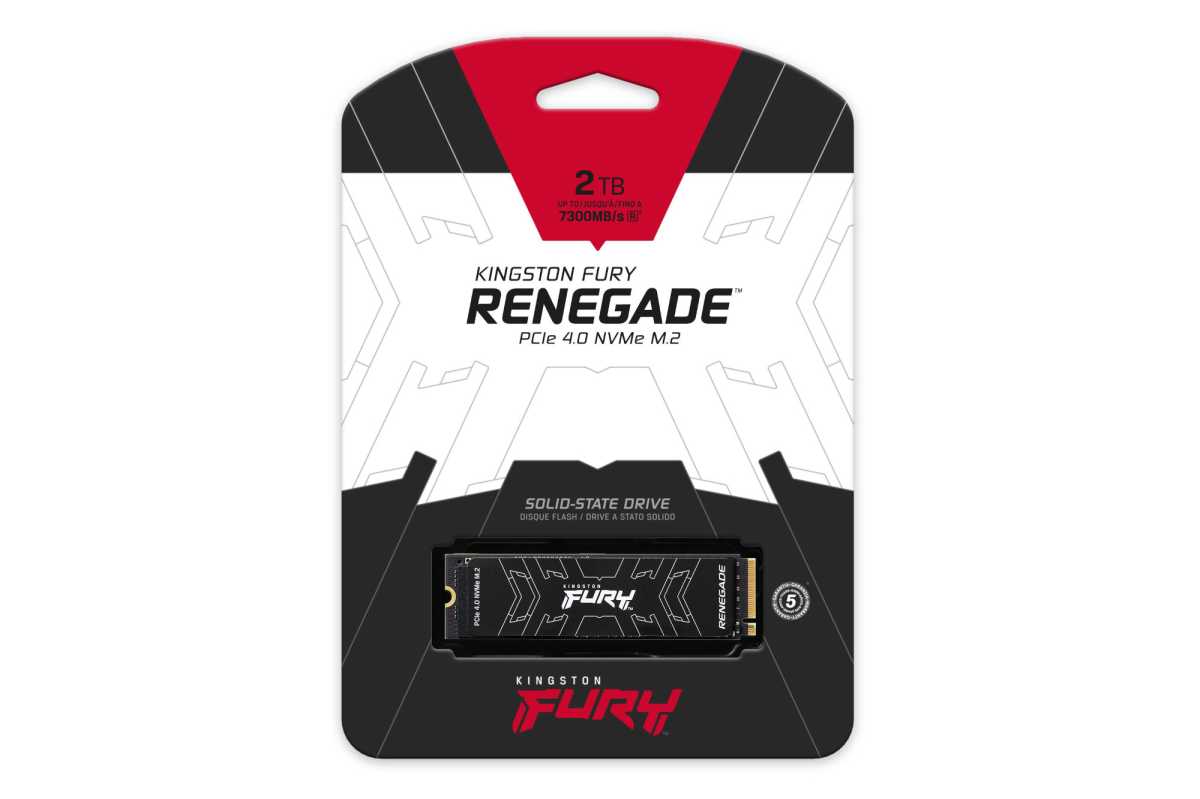
Those are the prices for the normal package with a graphene heat spreader. Our test unit arrived with a heatsink attached, an item that will set you back another $5 to $10 depending on capacity.
In truth, few people will need the heatsink, which also will not fit in laptops. Working a drive so hard that it thermally throttles is rare, so the graphene heat spreader should be adequate. Most high-end gaming and creator motherboards come with their own heatsinks anyway.
The other thing that impressed us about the Fury Renegade is its TBW (terabytes that can be written) ratings under its limited five-year warranty. The TBW is exactly 1,000 times the stated capacity of the drive—i.e., 500TB for the 500GB, 1PB (petabyte or 1,000TB) for the 1TB, 2PB for the 2TB, and 4PB for the 4TB. Those are extremely generous for a consumer drive—about twice the norm.
Kingston Fury Renegade: Performance
While the Fury Renegade didn’t top the charts in any one test, it was competitive in all of them. Outside of a slightly low sequential-read score, it was a good match for the highly rated Samsung 990 Pro and Seagate FireCuda 530. It beat both in CrystalDiskMark’s sequential-write test by a small margin.
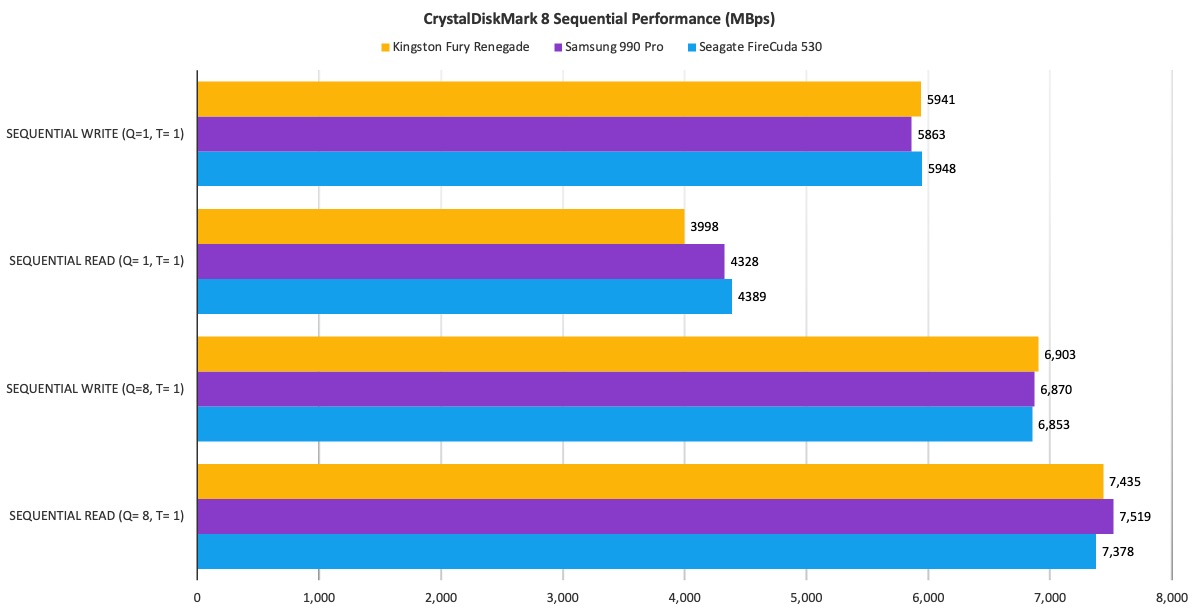
There was equally scant variance in our 48GB transfer tests. It’s fast, though none of these drives could match the Adata Legend 960’s 238 seconds.
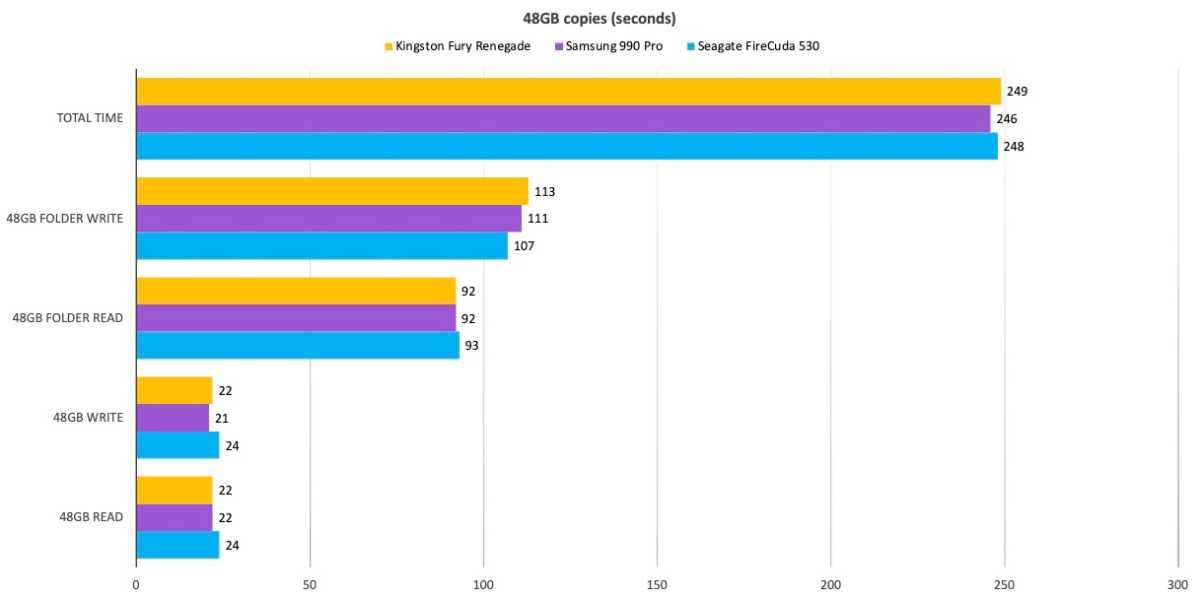
Where the Fury Renegade fell a bit off the pace was in our 450GB write test. It’s not slow, but it’s 44 seconds off the pace of the FireCuda 530 and an additional 11 seconds slower than the PCIe 3 Crucial P3—an SSD it otherwise outperforms.
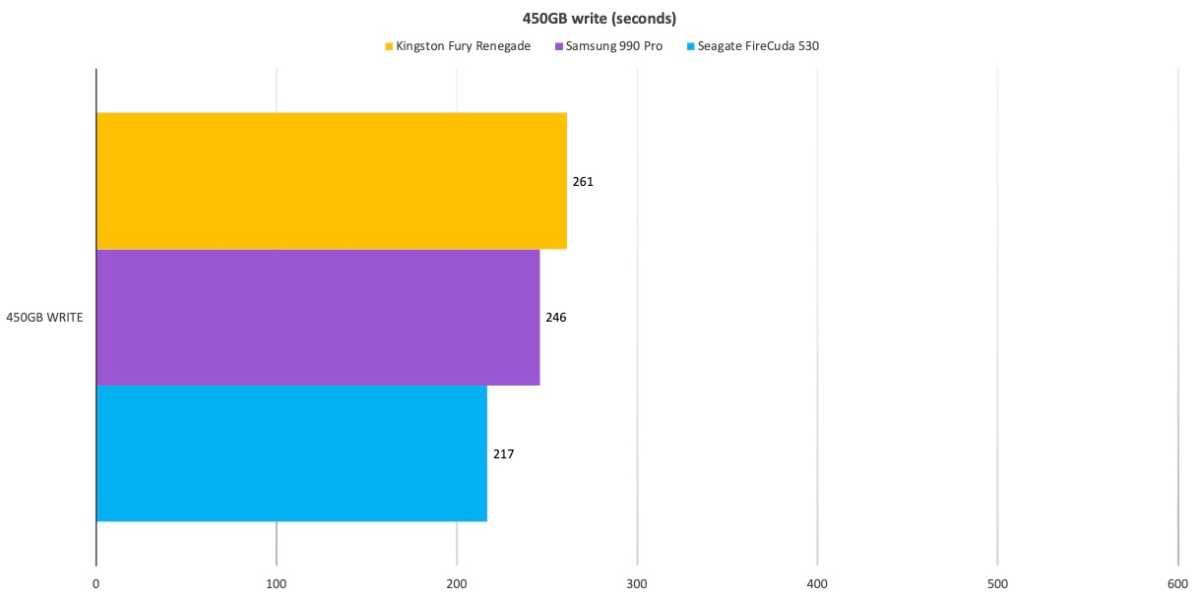
The issue seemed to be that the controller couldn’t make up its mind about the amount of date being transferred, continually having to allot more NAND as secondary cache (writing as single-bit SLC—a far faster process due to less error checking) when it ran out. You can see that in the bumpy screen capture of the copy process shown below. The fastest drives flatline at one high rate.
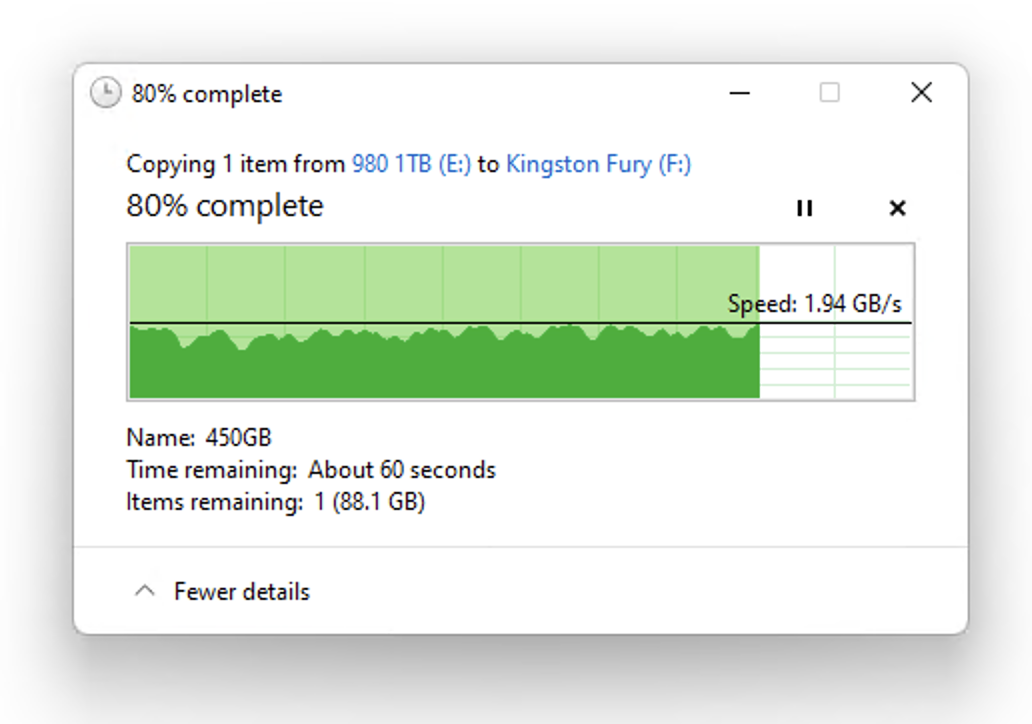
for the Kingston Renegade.
Internal drive tests currently utilize Windows 11 64-bit running on an MSI MEG X570/AMD Ryzen 3700X combo with four 16GB Kingston 2,666MHz DDR4 modules, Nvidia GT 710 1GB x2 PCIe graphics card, and an ASM3242 USB 3.2×2 card. Copy tests utilize an ImDisk RAM disk using 58GB of the 64GB total memory.
Each test is performed on a newly formatted and TRIM’d drive so the results are optimal. Over time, as a drive fills up, performance will decrease due to less NAND for caching and other factors.
The performance numbers shown apply only to the drive we were shipped and of the capacity tested. SSD performance can vary by capacity due to more or fewer chips to shotgun reads/writes across and the amount of NAND available for secondary caching. Vendors also occasionally swap components. If you ever notice a large discrepancy between the performance you experience, and that which we report (systems being roughly equal), please let us know.
Should you buy the Kingston Fury Renegade NVMe SSD?
For the price, you’re really not going to do much better than the Kingston Fury Renegade in a PCIe 4.0 NVMe SSD. Both fast and a bargain, it should definitely be on your short list.
For all the latest Technology News Click Here
For the latest news and updates, follow us on Google News.

